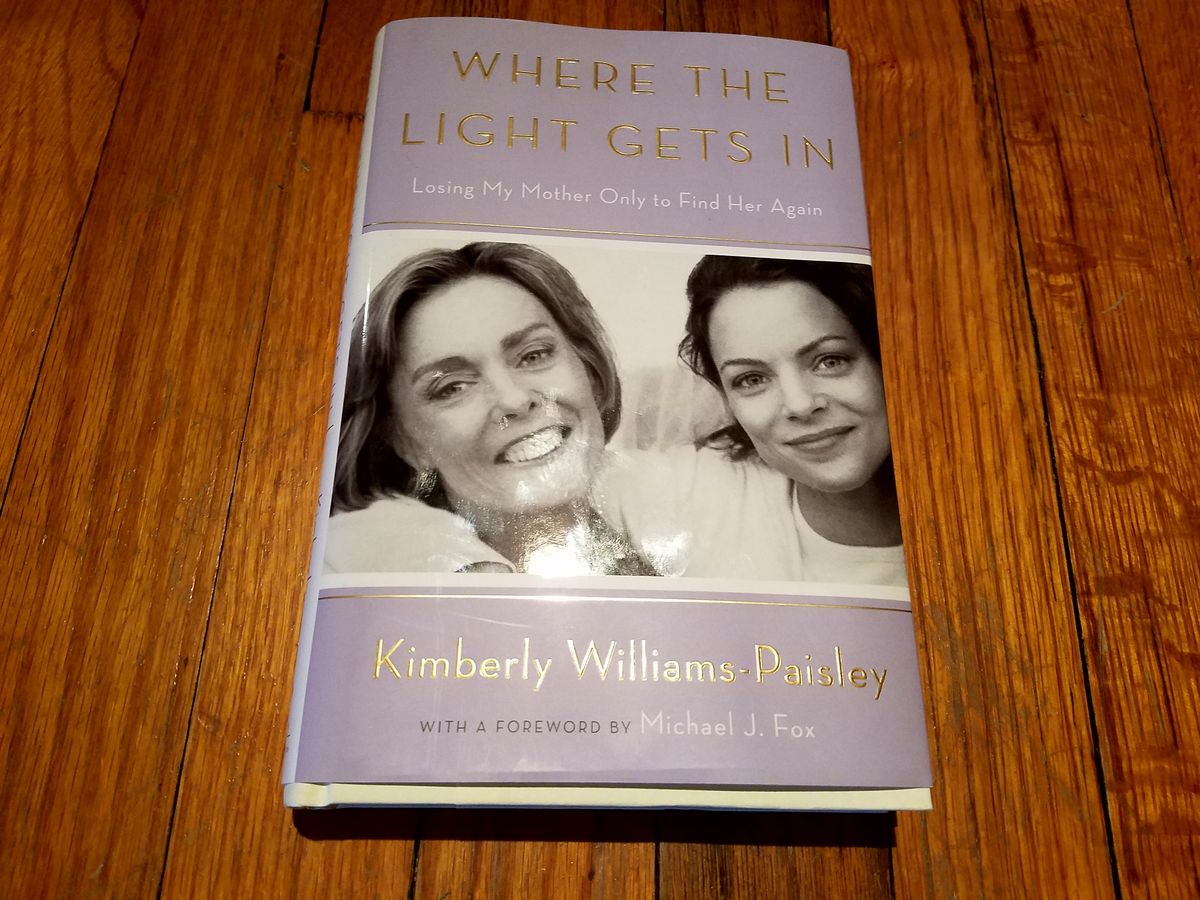The Imperfect Wedding: ‘Father of the Bride’ Shares PPA Story
Kimberly Williams-Paisley's book 'Where the Light Gets In' chronicles the struggles of her family as they deal with her mother's frontal lobe brain degeneration (PPA).

Kimberly Williams-Paisley delves into the poignant world of a loved one grappling with frontal lobe brain degeneration, particularly Primary Progressive Aphasia (PPA), in her heartfelt book "Where the Light Gets In." This powerful narrative evokes two distinct reactions from its readers: it either becomes an unputdownable journey or necessitates frequent pauses to reflect on the tumultuous emotions it stirs. For me, the book serves as a stark reminder of the harrowing experiences I endured, watching my father succumb to Frontotemporal Dementia (FTD), accompanied by the additional burdens of familial conflicts and subpar care at an expensive memory care facility.
Now, six months after my father's passing, my brother and I communicate solely through our attorneys. The pain of his disease still lingers, and my discontent with the memory care facility escalated to the point where they forbade me from seeing my father. Only after I reported to the state that my father deserved better care, he was moved to a nursing home, and we were reunited a mere three weeks before his passing.
The battle continues, now shifting to the details of my father's estate. I eagerly await its resolution in July, and I contemplate taking a break from writing about these issues, as this entire ordeal has eaten away at me like a relentless cancer. This is the unvarnished truth of my experience.
Frontotemporal Dementia offers no mercy to the family of even a storybook couple like Kimberly Williams-Paisley, renowned for her role in "Father of the Bride" and married to country singer Brad Paisley. Ironically, it was during her wedding that she first noticed troubling signs in her mother, who exhibited irrational behavior and struggled through a Bible reading. As is often the case with FTD, including PPA, symptoms manifest well before a formal diagnosis, which her mother received at age 61 in 2005. Her mother is still alive, appearing on the Today show as recently as April 5, albeit without the ability to speak.
One noteworthy critique of Williams-Paisley's book (voiced within my FTD support groups) is her reference to her mother's condition as PPA, rather than the broader term Frontotemporal Degeneration. PPA is, in fact, a subcategory of FTD. The other type, the behavior-variant, was the one that claimed my father's life.
PPA is characterized by a gradual loss of communication abilities, both speaking and understanding language. In contrast, the behavior-variant type exhibits outrageous behaviors as early signs, with speech difficulties emerging towards the end of life. Both forms are devastating, and several recent books, including Gary Radin's "What if it's Not Alzheimer's?" and the efforts of The Association for Frontotemporal Degeneration, have contributed to raising awareness about this rare brain disorder that affects around 50,000 Americans.
The book vividly portrays the friction among siblings and presents heart-wrenching accounts of Williams-Paisley's son attempting to comprehend "nana." It accurately conveys the burden her father bore while living with his wife's disease. In a Today show interview, Williams-Paisley expressed her fear of losing her father before her mother, as the disease placed an immense amount of stress on him. This situation is all too common, as caregivers for elderly individuals with dementia often pass away before the patients, as documented in my report for Healthline Contributors.
An intriguing facet of Williams-Paisley's story is that her father has found a new love interest, Nancy, despite her mother's continued presence. Williams-Paisley refers to Nancy as "a blessing." The story also delves into touching moments between Williams-Paisley and her mother, reminiscent of "Where the Light Shines In." As the relief phase following her father's death has subsided and the grief phase commences for me, I find myself yearning for those meaningful moments. I discovered a profound purpose in my life through my father's suffering.
The most valuable aspect of the book, and one I wholeheartedly recommend to anyone facing a loved one's recent FTD diagnosis, is the comprehensive resources section at the end. It addresses critical questions that can ignite family conflicts if left unaddressed, such as where to obtain a reliable diagnosis, caregiver-focused resources, dealing with a dangerous driver, considering brain donation for scientific research upon death, ensuring all necessary paperwork (wills, power of attorney, DNR, etc.) is in order, and handling incontinence or aggression in a loved one. The section also offers sage advice on selecting a suitable long-term care facility, emphasizing that it's not just about aesthetics but about the quality of care provided.
Williams-Paisley's book is punctuated with humor. Her mother's memorable quote, "It was more shit in a bucket than where the light gets in," is a testament to her sharp wit and resilience. In another amusing anecdote, she recalls her initial confusion about her husband, Brad Paisley's, reference to performing at the "opera" rather than the "Opry" due to her city upbringing and unfamiliarity with the accent.
Williams-Paisley beautifully captures her father's dedication to documenting their journey, using writing as a means to distance himself from the crisis while making sense of it later. I didn't begin writing about my father's disease until it deeply affected me. Those columns I wrote for this site and Healthline Contributors were a lifeline for me, allowing me not only to express myself during those traumatic years but also to educate others.
In my view, Williams-Paisley's book deserves a five-star rating for its profound impact in shedding light on FTD and providing invaluable resources to those facing similar challenges. It is a moving testament to the strength and resilience of families grappling with this devastating disease.
Share Your Sorrow: Writing To Heal
You might also like this article:









